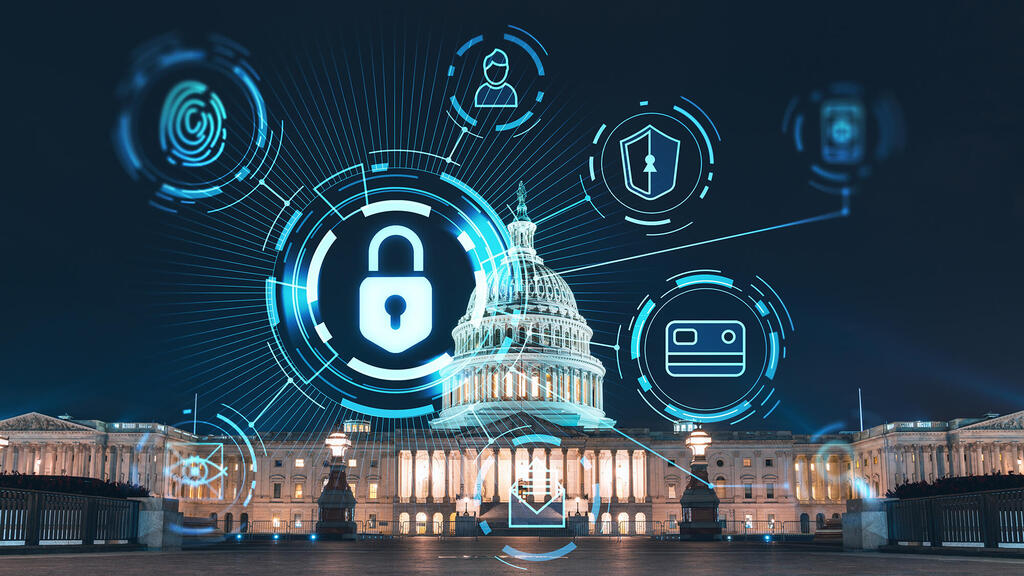
Three ways voters face cyber fraud this election cycle
The US election is almost over - thankfully - but that doesn’t mean voters are safe from attacks. Cybersecurity company Guardio has outlined some ways Americans are at risk this season.
With mere days before people vote in the 2024 presidential election, Americans are being warned of cyber threats and fraud attempts that rely on naive internet users who risk losing their money. According to Karin Zilberstein, VP Product at Guardio, election season is prime time for criminals looking to exploit online enthusiasm and take advantage of voters’ willingness to spend money towards their political candidates.
2 View gallery


There are several ways voters can fall victim to scams this election season
(Photo: VideoFlow/Shutterstock)
Donations
“Obviously, all candidates raise money, and people are involved emotionally and want to make an impact,” explained Zilberstein. “Hence they are not, let's say, careful when a donation request comes their way. They don't necessarily check all the details. And the devil is always in the details, right?”
According to Zilberstein, election cycles see a rise in the use of AI to produce scam websites that encourage voters to unknowingly donate to malicious sites. This can also lead to phishing attempts, malware, or setting up recurring payments that are not related to any candidate or party. “The money might go to a legitimate cause, but not a cause that was portrayed on the website,” she added. “Or it might go to a different organization that is not directly related to the election or the candidate of choice.”
Guardio is on a mission to “make the digital world a safer place for everyone” by providing technology that prevents scams, phishing, malware, and identity theft and offers data protection for users on their electronic devices. Its solutions cover computers and mobile phones and flag users when they are navigating an online journey that may lead to exploitation.
Merchandise
Another way voters can be exploited is through the promotion of merchandise offered by sellers who claim to be associated with official campaigns. This year, merchandise can involve anything from signs, posters, and hats, to sneakers, Bibles, or playing cards. A lot of merchandise can lead to a lot of fraud attempts.
According to Zilberstein, the fraud goes like this: Everyone loves merchandise and to show their political support. Fake sites would lure people toward unofficial merchandise they claim is free. A few clicks into the online journey, it would say the voter would pay for postage and packing. A reasonable request - except, the item never arrives and now the payment method has been stolen and used for other purposes.
“People might think it's cutesy because it involves merchandise,” she said. “People are into merchandise these days but it may be a hack.”
Fake Surveys
Finally, the third way fraudsters may be able to exploit voters is through fake election surveys sent via email. “It's painful to say, but hackers are pretending to be legitimate news channels,” said Zilberstein. “So people would get an email asking for their opinion. It will ask about their political views and stance, or about specific topics. And they want to get involved and they want to cast their opinion because they want to make an impact. Your opinions might later be used against you.”
By collecting what appears to be innocent data points via deceitful surveys, voters’ political stances will become apparent and they could be a target for financial fraud such as merchandise deals mentioned above. “It's a wide net of data and information that is being pulled out of people and later being used to target more effectively phishing campaigns where it can get to people's pockets,” she explained.
Solutions
As the election cycle enters its final few days, voters can use technology on their devices to ensure that they don’t fall victim to AI-based scams. Alongside an extra layer of digital protection, they can also become more knowledgeable and savvy on the risks of visiting unofficial sites that may lead to exploitation. A healthy dose of skepticism and criticism when scrolling online may save you thousands of dollars down the road. “We can no longer judge with our own eyes what's real and what's not. We need to use AI vs. AI to win that game,” she concluded.














